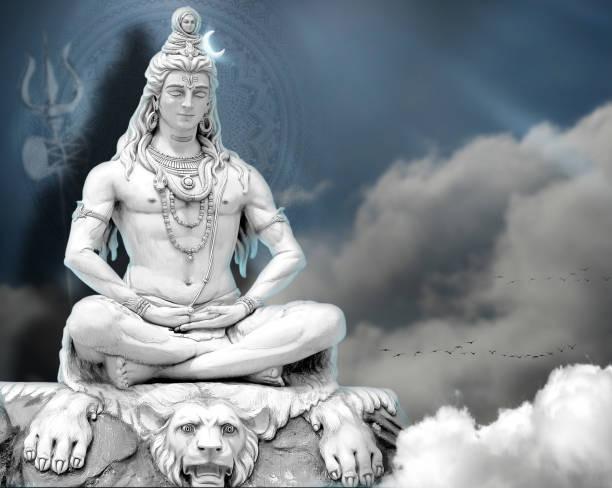The Mythological Origins of Lord Shiva
Lord Shiva’s mythological origins trace back to the ancient scriptures of Hinduism, where he is revered as the Supreme Being, beyond the realms of time and space. According to Hindu mythology, Shiva is one of the Trimurti, along with Brahma the creator and Vishnu the preserver. He is often depicted as the destroyer of evil forces, paving the way for regeneration and renewal in the universe. Through tales of his divine manifestations and cosmic dances, Lord Shiva embodies the eternal cycle of life, death, and rebirth.
Symbolism in the Iconography of Lord Shiva
The iconography of Lord Shiva is rich with symbolism, each aspect representing deeper philosophical concepts and spiritual truths. His matted hair symbolizes his ascetic nature, while the crescent moon adorning his head symbolizes the cyclical nature of time. The third eye of Shiva represents inner vision and spiritual insight, capable of destroying ignorance and unveiling the truth. The serpent coiled around his neck symbolizes his mastery over the forces of nature, while the trident he wields represents the three fundamental aspects of existence – creation, preservation, and destruction.
Spiritual Teachings and Practices
Associated with Lord Shiva Beyond his mythological and symbolic significance, Lord Shiva embodies profound spiritual teachings that resonate with seekers on the path of self-realization. Devotees of Shiva engage in various spiritual practices such as meditation, yoga, and chanting of sacred mantras like the “Om Namah Shivaya.” These practices are aimed at cultivating inner peace, wisdom, and detachment from worldly illusions, ultimately leading to union with the divine consciousness represented by Lord Shiva.
Lord Shiva in Contemporary
Culture and Devotion In contemporary culture, the influence of Lord Shiva extends far beyond religious boundaries, permeating art, literature, music, and popular culture. His timeless appeal as a symbol of power, wisdom, and transcendence continues to inspire millions of people around the world. From ancient temples dedicated to Shiva to modern interpretations in literature and film, the reverence for Lord Shiva remains deeply ingrained in the collective consciousness of humanity.
Conclusion:
As we conclude our exploration of Lord Shiva, we invite you to reflect on the profound significance of his mythology, symbolism, and spiritual teachings. Whether you approach Shiva as a deity of worship or as a timeless symbol of inner transformation, his presence pervades every aspect of existence, reminding us of the eternal dance of creation and destruction. We would love to hear your thoughts and experiences with Lord Shiva. Please feel free to share your comments and insights below.






